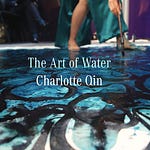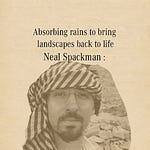In this podcast I interview Dr. Elizabeth Dougherty, executive director of WhollyH20. She was instrumental in helping get California to pass its greywater laws. She did this by bring different demographics together - the hippies who knew about what to do with water, with the Stanford engineers who were happy to learn about these methods, and the government officials who could implement the new water laws that allowed these new ways of working with water. She talks about getting Brock Dolman, now a water legend who runs the Water Institute at the Occidental Arts and Ecology Center, who back then was a long haired bare-foot hippie (edit: Brock Dolman wrote me to say he actually wasn’t bare foot back then ) to put on suits in order to be heard properly by formal administrators and public utilities workers.
Elizabeth got her PhD in anthropology, and is interested in peoples relationship with the water cycles. Her organization has more recently worked with getting communities to connect with their watersheds, and talk about the stories of water in their neighborhoods, with one common, usually largely unknown, story being that neighborhoods have paved over their creeks. Telling these stories can help get a process called “daylighting” to bring these creeks back to the surface. In getting communities interested about their watershed, they learn about the various aspects of the water cycle, and are more willing to get water projects activated.
Elizabeth also talks about the intersection of the diversity and BIPOC (Black, Indigenous and People of Color) movements, with the restoring-our-water-systems movement.
We also talk about techniques you can use to get your local government to help restore the water cycle in your local neighborhood.













Share this post